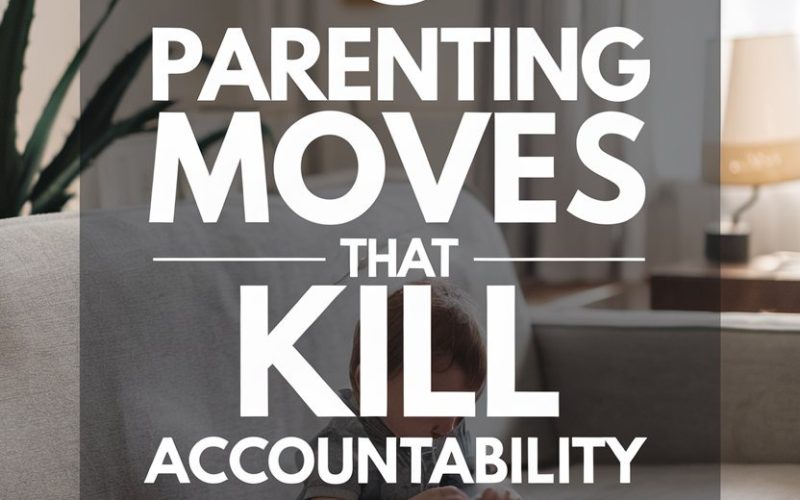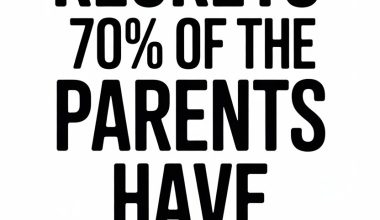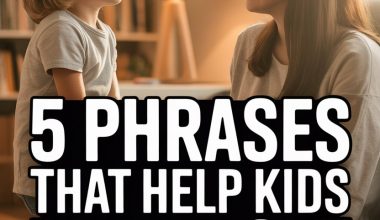Parenting is a marathon where the finish line keeps moving and the track is covered in Lego bricks.
Amid the juggling act of dinner, after-school clubs, and those existential questions at bedtime (“Why can’t I eat cookies for breakfast every day?”), it’s astonishing we remember to feed the goldfish, let alone raise responsible humans.
And yet, accountability is one of the greatest gifts we can give our kids—right after the Wi-Fi password.
Still, even the most loving, well-intentioned parents can accidentally squash accountability with a few familiar moves.
1. Excusing Everything With “They’re Just Kids!”
Here’s a classic. Your little darling “forgets” to hand in a school project, and before the teacher can even finish their sentence, you’re nodding: “But he’s only seven!” or “She’s just tired, you know how it is after netball.”
Of course, age matters. But when “they’re just kids” becomes the go-to get-out-of-jail-free card, children quickly learn that personal responsibility is optional.
Research highlights how even young children are capable of developing self-control and follow-through—when given the chance.
Try swapping excuses for empathy and structure.
Instead of swooping in to explain away every mishap, talk about what happened, how your child felt, and what they could do differently next time. “Yes, missing the project deadline was tough. What might help you remember next time?”
Cue the lightbulb moment—and a bit more ownership.
2. Rescuing and Micromanaging
Oh, the temptation to swoop in and save the day.
Lunch left behind? Parents have been known to break land-speed records racing back to school, sandwich in hand. Forgot the football kit? There’s a parental Uber service dedicated solely to last-minute drop-offs.
It feels loving—heroic, even. But each rescue is a subtle message that your child can rely on you to mop up every mess.
Researchers have found that when kids don’t experience the natural consequences of their actions, they miss out on learning how to plan ahead and solve problems.
Feel like your child might actually starve or be exiled from PE forever? Try a smaller step-back. The next time your child forgets something, ask: “What’s your plan?” Or let them experience that awkward moment with the teacher.
It’s a gentle nudge toward self-reliance—and a break for your petrol budget.
3. Blaming Others for Your Child’s Behaviour
“The teacher must have it out for him.”
“She wouldn’t hit her brother unless he provoked her.”
“Those other kids are such a bad influence.”
If you’ve ever found yourself building an elaborate legal defense for your child’s slip-ups, you’re not alone. It’s natural to want to protect them.
The trouble is, blame deflection teaches children to look anywhere but the mirror when things go pear-shaped.
A study from American Psychological Association shows that kids who are encouraged to own their mistakes are more likely to develop resilience and problem-solving skills.
It’s not about throwing your child under the bus; it’s about gently guiding them to see their part in the drama.
Next time your little one swears the maths teacher has it in for them, try: “It sounds like it was a tough day. What do you think you could try next time if the same problem comes up?”
Accountability, delivered with a side of empathy.
4. Never Admitting Your Own Mistakes
Children are world-class hypocrisy detectors. They’ll spot it the moment you eat chocolate in the pantry after banning sweets before dinner, or “misplace” the library book you swore you’d return.
If the grown-ups never fess up, why should the kids?
Owning your own blunders is one of the most powerful things a parent can do to foster accountability.
Family therapists suggest that modelling honest apologies not only teaches kids how to take responsibility but also creates a home where mistakes aren’t shameful—they’re just part of the human experience.
Spilled coffee on the couch? Forgot about that dentist appointment? “Whoops, I made a mistake. Here’s how I’ll fix it.”
Not only does this language take the blame-game off the table, but it also shows that even grown-ups are works in progress. Good news, since nobody’s ever graduated from Parenting University with full honors.
5. Rewarding Only Outcomes, Never Effort
Imagine this: Your child slogs away on a science project, genuinely tries, but falls short of a blue ribbon. The sibling skates by, spends five minutes on a poster, and gets a gold star.
If praise and rewards are always tied to success and never to the effort behind it, kids can start to believe that shortcuts (or luck) matter more than stick-to-itiveness.
The Growth Mindset movement—popularized by psychologist Carol Dweck—shows that kids who are praised for their effort, strategy, and resilience are far more likely to develop grit and personal responsibility than those who are only rewarded for outcomes.
It’s the difference between “You’re so smart!” and “I noticed how you kept working at that, even when it was tricky.”
Next time your child brings home a less-than-perfect result, try: “You put a lot of thought into that. What did you learn? What might you try differently next time?”
You’re teaching them that accountability is about process, not just prizes.
Raising Responsible Kids (Without Losing Your Mind)
No parent gets it right all the time. (Frankly, if you find one who does, ask what they’re putting in their coffee.)
Accountability isn’t about raising little robots—it’s about helping kids see that actions have consequences, mistakes are learning opportunities, and everyone in the family is doing their best with what they know.
The good news? Every day offers a new chance to model, teach, and yes, occasionally laugh at your own spectacular parental flubs. Maybe your child will forget their football kit tomorrow.
Maybe you’ll lock your keys in the car—again. Maybe you’ll both end up trudging back to school together, plotting a plan for next time.
That’s accountability, family style: messy, human, and a little bit wonderful.




